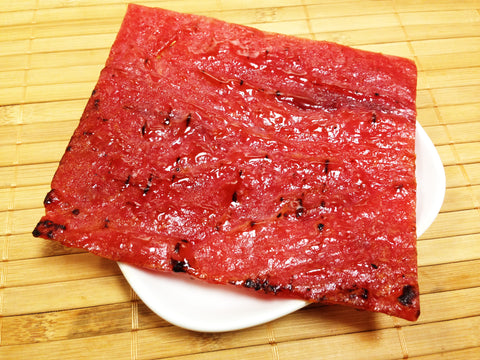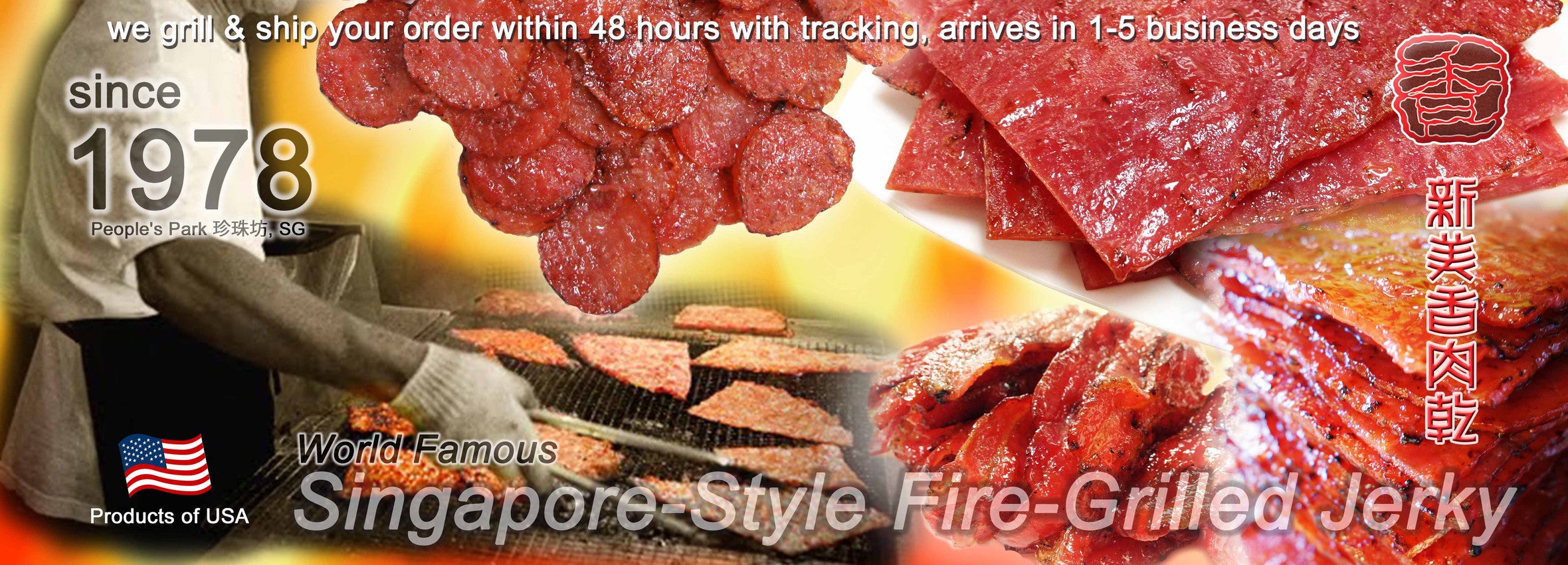What's Bak Kwa?

Bak Kwa 肉干
Bak Kwa, 肉干, is a meat snack originated from Southern China. Thin slices of meat are marinated, dehydrated, smoked and flame grilled.
The meat used for producing Bak Kwa is usually pork but contemporary versions include chicken, beef and even vegetarian Bak Kwa 素肉干 made from Soya sources.
Bak Kwa making is a food preservation technique developed at a time when there were no refrigerators. When Chinese migrated to Singapore, this food preservation technique was brought along with them.
Bak Kwa as a food product was an innovation to preserve meat in response to food demand in the face of technological and climatic limitations. This innovation produced a technique that worked and tasted good at the same time. Bak Kwa eventually became a food item in its own right.
The invention of the refrigerator did not spell the end of demand for Bak Kwa. In fact, refrigerators were used to enhance the freshness of Bak Kwa.
In the past, Bak Kwa was considered a luxury good and most families bought them during festive seasons like Chinese New Year. As economic situations of most families improved, Bak Kwa became affordable and consumed more frequently. This led to the widespread popularity of Bak Kwa as we know it today.
Bak Kwa can be consumed in many ways. It can be made into a sandwich, used as an ingredient, served as part of a cold dish in an official banquet, munched on its own, served as a finger food, or enjoyed with beer.
Being a delicacy, Bak Kwa is a popular choice as gift item. Consumers would present them to their parents, siblings, in-laws, relatives or friends. Some companies give Bak Kwa as corporate gifts to important customers. Tourist buys them as edible souvenirs.
Modern versions of Bak Kwa reflect new dietary choices and innovation. Bak Kwa with cheese, pineapple and black pepper have appeared.
As a food product, Bak Kwa has evolved from an innovative preservation technique to become a delicacy in its own right and as a product of cross-cultural consumption.
In the United States, Bak Kwa is known to be the most smuggled snack food by travellers entering the US from Asia Pacific countries.
However, dues to strict USDA meat import regulations, importing Bak Kwa, even for personal uses, is illegal. They are subject to confiscation by US customs. Some travellers even get blacklisted by US customs causing further inconvenient on future travels.

